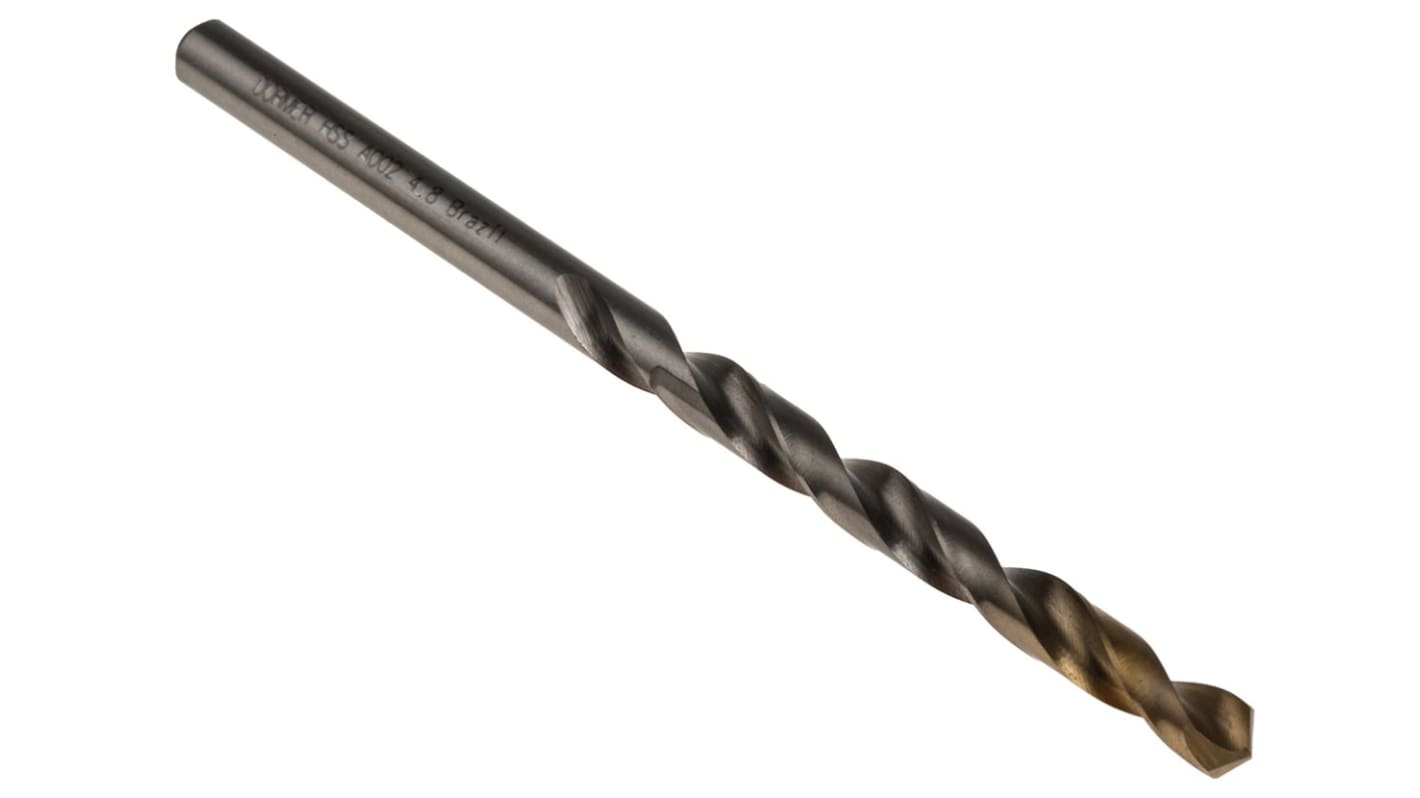Dormer High Speed Steel Tin, 86 mm Overall 5
- RS Stock No.:
- 794-7300
- Mfr. Part No.:
- A0024.8
- Manufacturer:
- Dormer

Subtotal (1 box of 5 units)*
PHP1,175.60
(exc. VAT)
PHP1,316.67
(inc. VAT)
Add 3 boxes to get free delivery
In Stock
- 45 unit(s) ready to ship from another location
Need more? Click ‘Check delivery dates’ to find extra stock and lead times.
Box(es) | Per Box | Per Unit* |
|---|---|---|
| 1 + | PHP1,175.60 | PHP235.12 |
*price indicative
- RS Stock No.:
- 794-7300
- Mfr. Part No.:
- A0024.8
- Manufacturer:
- Dormer
Specifications
Legislation and Compliance
Product Details
Find similar products by selecting one or more attributes.
Select all | Attribute | Value |
|---|---|---|
| Brand | Dormer | |
| Product Type | Drill Bit | |
| Material | High Speed Steel Tin | |
| Number of Flutes | 4 | |
| Flute Type | Helical | |
| Overall Length | 86mm | |
| Shank Type | Cylindrical/Straight | |
| Number of Pieces | 5 | |
| Finish | Titanium Nitride | |
| Shank Size | 4.8 mm | |
| Drill Point Angle | 118° | |
| Cutting Direction | Right | |
| Drilling Length | 52mm | |
| Standards/Approvals | BS 328, DIN 338 RN, ISO 235 | |
| Select all | ||
|---|---|---|
Brand Dormer | ||
Product Type Drill Bit | ||
Material High Speed Steel Tin | ||
Number of Flutes 4 | ||
Flute Type Helical | ||
Overall Length 86mm | ||
Shank Type Cylindrical/Straight | ||
Number of Pieces 5 | ||
Finish Titanium Nitride | ||
Shank Size 4.8 mm | ||
Drill Point Angle 118° | ||
Cutting Direction Right | ||
Drilling Length 52mm | ||
Standards/Approvals BS 328, DIN 338 RN, ISO 235 | ||
RoHS Status: Exempt
- COO (Country of Origin):
- BR
Dormer A002 series HSS Industrial Drill Bits
Introducing the A002 series of high-quality, industrial HSS-TiN Jobber Drill Bits from Dormer. The professional Drill Bits have been manufactured from premium-quality HSS steel featuring a Titanium Nitride coated tip for increased wear resistance, the service life of drill and better cutting performance when drilling harder materials. Drill Bits feature 118° point angle for precise application. Easy to read size markings are engraved on the side of each drill bit. Drill's helix has been redesigned for greater stiffness. Dormer A002 professional general-purpose drills are suitable for both hand and machine use and are ideal for drilling into steels, cast steel, grey cast iron, malleable cast iron, nickel-brass, aluminium alloy and graphite, plastic etc. (Not suitable for masonry applications).
Features and Benefits:
• Features self-centring split-point for excellent positional accuracy and hole quality
• TiN tip coating for extended tool life & increased performance (2.0mm and above)
• Optimised Web Design for increased strength and rigidity
• Will drill up to 4xD in steel, stainless, cast iron, plastics and many other materials with ease
• Suitable for both hand and machine use
• 118° split point design for better centring and precise application
• Available in a range of diameters from 3 mm → 13 mm
Note: With diameters ranging from 3 → 6.9 mm, these drill bits are sold in 5-piece / 10-piece packs or individually from the 7 mm size.
Approvals and Certification:
• DIN338RN
• ISO235
• BS328
Typical Applications:
These bits are ideal for fast drilling of a plug, anchor or clearance holes in a number of materials such as steel, plastic, wood, metal etc. This makes it an essential piece of kit to have if you work within the carpentry/construction/engineering industries to save time and money on being able to perform more efficiently when working with stubborn materials.
FAQs:
Can these drill bits be used with any SDS drill?
No, they are standard drills, will not fit into SDS chuck
What does jobber mean?
The word jobber specifies the length of the drill bit. This generally means the length of the entire drill bit itself is significantly longer for diameter it has. As an example, a mechanic drill bit will have a much shorter flute and therefore have a much smaller overall length.
What is HSS?
An acronym for High-speed steel, HSS is generally the go-to type of steel needed for drill bits due to their excellent heat resistance at high speeds. As a standard drill can spin upwards of around 500 - 700rpm, the friction can cause a substantial build-up of heat. Something which would not be wanted when working with wood and plastic.
Related links
- Dormer A002 Series HSS-TiN Twist Drill Bit 86 mm Overall
- Dormer A002 Series HSS-TiN Twist Drill Bit 86 mm Overall
- Dormer A002 Series HSS-TiN Twist Drill Bit 86 mm Overall
- Dormer A002 Series HSS-TiN Twist Drill Bit 86 mm Overall
- Dormer A002 Series HSS-TiN Twist Drill Bit for Steel 86 mm Overall
- Dormer A002 Series HSS-TiN Twist Drill Bit 61 mm Overall
- Dormer A002 Series HSS-TiN Twist Drill Bit 70 mm Overall
- Dormer A002 Series HSS-TiN Twist Drill Bit 151 mm Overall

